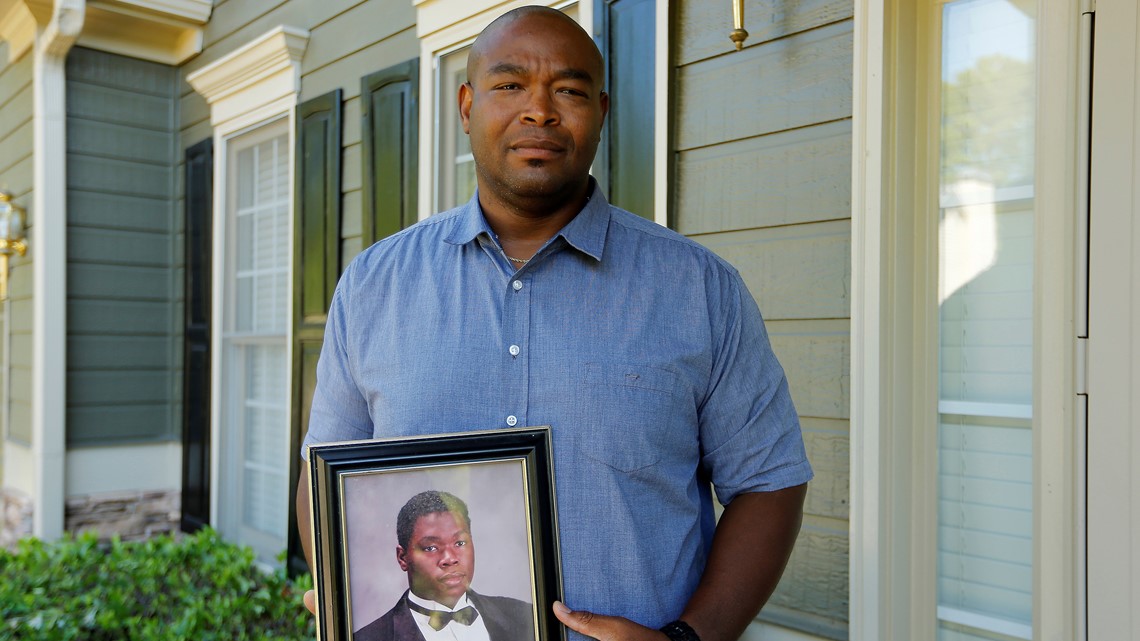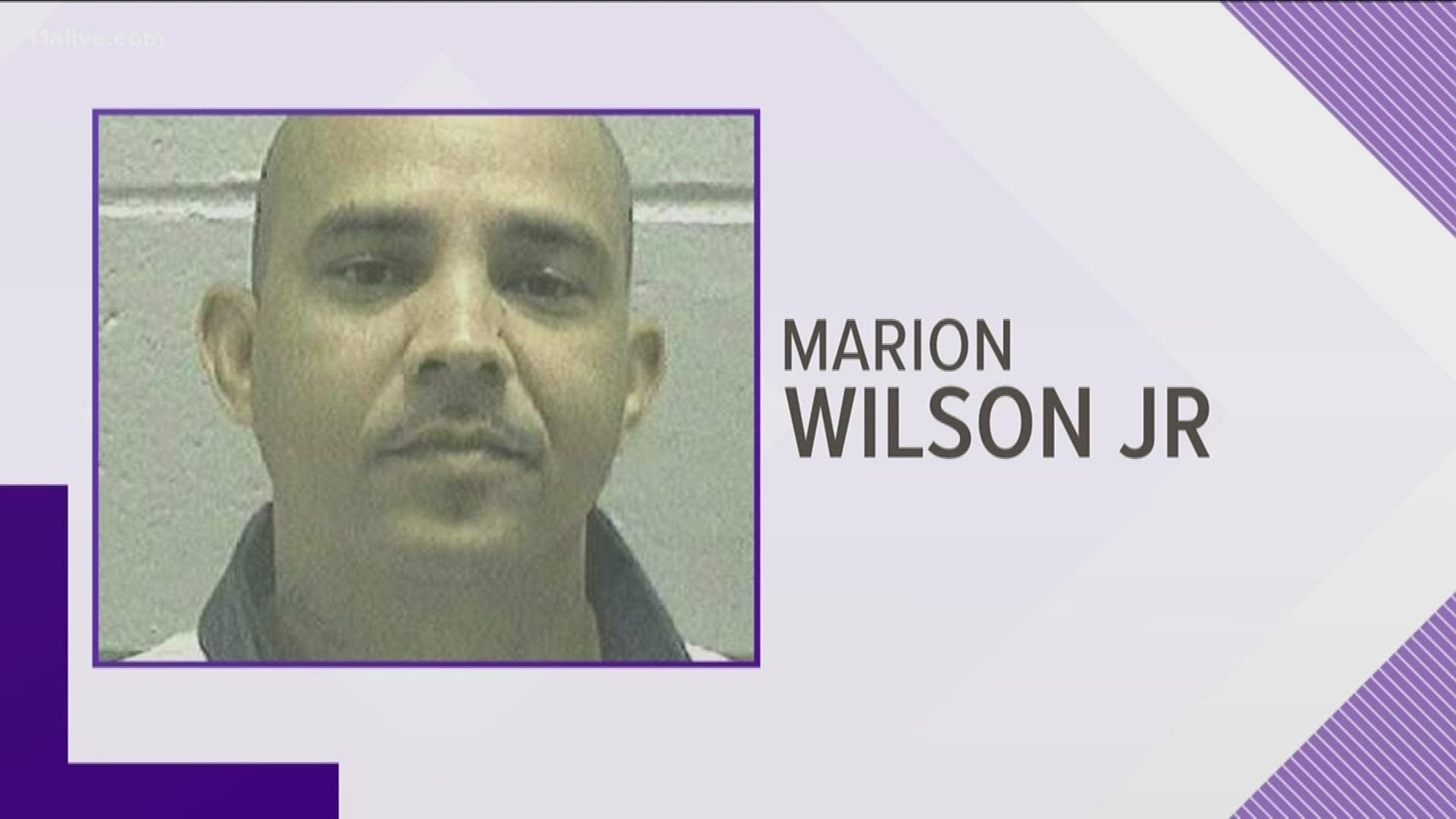POWDER SPRINGS, Ga. (AP) — Chris Parks is ready to stop checking the number of days since his brother was murdered.
For more than two decades he's periodically tracked how many days go by before the two men convicted of killing him are executed. On Thursday, when the second is scheduled to die, the days will number 8,484.
Marion Wilson Jr. and Robert Earl Butts Jr. were convicted of murder and sentenced to death in the March 1996 slaying of 24-year-old Donovan Corey Parks in Milledgeville, about 90 miles southeast of Atlanta.
The state executed Butts, who was 40, in May 2018. Wilson, 42, is set for execution Thursday.
"What they did to him was not humane. It wasn't fair," Parks said, a tear sliding down his cheek.
That day is etched in Parks' memory. He had dreamed the night before that someone killed his brother, and he was relieved in the morning to see Donovan on the couch.
Before the day ended, his nightmare had become reality.
Parks said his brother went to church the evening of March 28, 1996, and then to Walmart to buy cat food.
Witnesses saw Wilson and Butts, who prosecutors said were gang members, standing behind him in a checkout line. A witness heard Butts ask Parks for a ride.
Butts was in the front passenger seat and Wilson was in the back as they left the parking lot, witnesses said. Wilson told investigators Butts pulled out a sawed-off shotgun, ordered Parks to drive and then ordered Parks out of the car and shot him once in the back of the head, according to court documents. The pair then stole Parks' car.
Parks' father, Freddie, found him lying along the road, but the shotgun did so much damage that he wasn't sure it was his son.
Chris Parks, 42, is frustrated that it's taken more than two decades for Butts and Wilson to be executed.
"Donovan was arrested, tried, convicted, sentenced and executed within 30 minutes for being nice, for being caring," he said.
Meanwhile, he said, Butts and Wilson had years to fight for their lives. Lawyers for both men argued in court filings that the death penalty is an unconstitutionally cruel and unusual punishment.
"What's cruel and unusual is to snatch a man from his vehicle by his necktie so tight that he probably can't speak or breathe," Parks said. "What's cruel and unusual is to lay that man down on the cold asphalt and to take his life as if he was worth nothing more than gum on the bottom of a shoe."
When he died, Donovan Parks was working two jobs — as a prison guard and at a Winn-Dixie grocery store — to make money to study to become a prison counselor.
"He wanted to help those inmates that were in for the long ride, as well as those who were getting ready to transition back to society," Chris Parks said. "He believed that having those conversations and working out those issues that they had would make them better individuals."


Donovan and Chris Parks' mother had died just under a year before Donovan's murder, and the family's house caught fire about six months after. Overwhelmed by tragedy, Chris Parks fled Milledgeville and joined the Army.
He now works in cybersecurity and lives just outside Atlanta with his wife and four children — the oldest, a daughter, named Corey in honor of her late uncle.
Parks thinks about his brother every day and wishes he could call him to complain or seek advice. He's heartbroken that his children were robbed of the opportunity to meet their uncle, who was artistic like Chris' two daughters and sensitive like one of his sons.
Parks witnessed Butts' execution last year.
Georgia executes prisoners using an injection of the sedative pentobarbital. Strapped to a gurney with his arms outstretched to either side, the prisoner appears to fall asleep as witnesses watch from the other side of a large window.
"Honestly, it made me angry," Parks said of Butts' execution. "What I saw was a man who was unremorseful. What I saw was a man being put to sleep as if he were getting a root canal."
Still, he plans to be there again — with his wife, his dad and his stepmother — sitting in the front row of the witness area, to watch Wilson draw his final breaths.
"Execution doesn't bring him back," he said, referring to his brother. "But what execution does is it offers a starting point for myself, my dad, our family, to finally get some sort of closure and to start healing."
MORE HEADLINES

